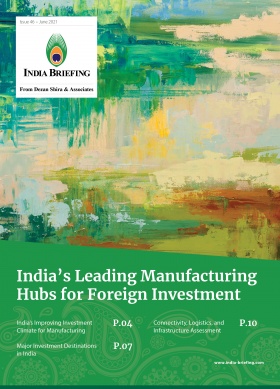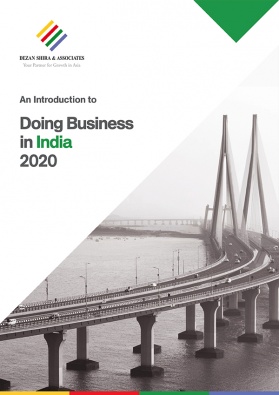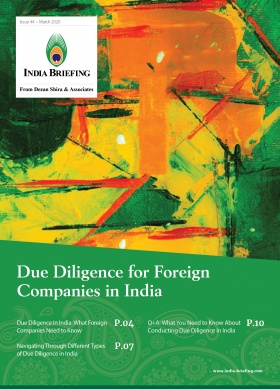India COVID-19 Vaccine Development and Availability
India’s nationwide COVID-19 vaccination drive has been underway since January 2021. This article discusses the current COVID vaccine candidates available and costs in the private sector as well as expected COVID-19 vaccines that will be imported, produced, and administered in India through to the end of the year.
Latest updates
- Moderna’s COVID-19 vaccine to be available in India at select major hospitals by July 15, sources in the know have communicated to the Economic Times.
-
The Netherlands has recognized Serum Institute of India’s Covishield as a valid proof of vaccination against COVID-19, and includes it in the Green Pass – see here for official list of recognized vaccines by the Dutch government.
-
Cadila Healthcare (Zydus Cadila) has applied for Emergency Use Authorization (EUA) with the DGCA for its plasma DNA vaccine for COVID-19, ZyCoV-D. The company is presenting its Phase 3 trial data to the regulatory body and states its vaccine is also safe for children in the age group 12 to 18 years; this will be a first for any COVID-19 vaccine. The vaccine is a three-dose one and is administered intradermally – using the PharmaJet, which is a needle-free applicator. Interim analysis shows a 66.6 percent efficacy rate for symptomatic RT-PCR positive cases; no moderate case after the third dose. The company is also considering a two-dose method. ZyCoV-D is reportedly stored at 2-8C but has shown good stability at temperatures of 25-degrees for at least three months.
- Seven European Union countries – Austria, Germany, Greece, Iceland, Ireland, Spain, and Slovenia – as well as Switzerland (as a Schengen state) have approved the Covishield vaccine. Separately, Estonia confirmed that it will recognize all vaccines authorized by the government of India for travel purposes, according to sources quoted by the media. Recognition of the India-made vaccines would be reciprocated, and holders of the EU inoculation pass will be exempted from India’s mandatory quarantine, India’s Ministry of External Affairs communicated on Wednesday. The EU Digital COVID Certificate or Green Pass will facilitate free movement among member states starting July 1. The External Affairs Minister, S Jaishankar, took up the issue of inclusion of Covishield in the EU digital Covid certificate scheme during a meeting with Josep Borrell Fontelles, the High Representative of the European Union, at the sidelines of a G20 meeting in Italy on June 29.
- Johnson & Johnson are in discussion with the Indian government on how to deliver its COVID-19 vaccine, the single-dose Janssen. J&J state that a bridging clinical study in India is not required under the DGCI’s latest announcement as it is already approved for restricted use by the US FDA, EMA, UK MHRA, PMDA Japan, and listed in the WHO Emergency Use Listing (EUL).
- Moderna has requested approval from the Drug Controller General of India (DGCI) for its COVID-19 vaccine. Mumbai-based pharma giant Cipla has applied for permission to import and sell the vaccine in India.
- As of June 28, 2021, according to a Reuters report, India has vaccinated 5.6 percent of its population with both vaccine doses; in comparison, the US is at 40 percent.
- India administered 39.1 million vaccine doses in the first week of its Phase 5 vaccination program, which has liberalized adult access to the COVID-19 vaccines.
- India aims to vaccinate all its adults by the year-end and the government is looking to procure 1.88 billion vaccine doses to achieve this. Multiple vaccine candidates are expected to be available in the Indian market in the latter half of 2021, including internationally approved vaccines and new vaccines currently under trial phase.
On June 14, 2021, India completed 150 days of its COVID-19 nationwide vaccination drive since starting on January 16, 2021. As of June 13, only about 3.5 percent of Indians were fully vaccinated. (The figures are based on the estimated population in 2021, which is over 1.3 billion.)
To contrast with the situation in other comparable economies, the share of people who are fully vaccinated in Brazil, Russia, and South Africa is at 11.07 percent, 9.78 percent, and 0.81 percent, respectively. Meanwhile, among India’s neighbors, about 2.57 percent of Bangladesh’s population is fully vaccinated, 1.29 percent in Pakistan, and 2.02 percent in Sri Lanka.
India’s vaccination program began with the emergency use authorization for two vaccines, namely the Covishield, developed by AstraZeneca-Oxford University and locally manufactured by the Serum Institute of India (SII) and Covaxin, the indigenous candidate developed by Bharat BioTech.
Upcoming vaccines this year include Russian made Sputnik V, India’s version of the Novavax vaccine – Covovax – and a vaccine produced by the Indian firm Biological E, among other candidates.
In his public address to the nation, Prime Minister Narendra Modi announced on June 7 that India’s COVID-19 vaccine procurement will now be centralized. The central government will procure 75 percent of the vaccines produced in the country and provide them to the state governments free of cost for all above 18 years. A five percent goods and services tax (GST) will apply on COVID vaccines. However, all Indian adults will be eligible for free shots from June 21 at central or state government centers.
India has also released revised guidelines for the national inoculation drive to be implemented from June 21 – vaccine doses will be allocated to States/Union Territories based on population, disease burden, and vaccination’ progress. For example, higher vaccination coverage will be rewarded with a higher number of doses but higher wastage will result in distribution of lesser number of doses.
Importantly, those unable to access the CoWIN portal to register for the vaccination (which is mandatory) will be able to access an onsite registration facility at all state and central government centers.
New vaccine candidates expected to become available in Phase 5
Starting from June 21, India’s COVID-19 vaccination program will enter its fifth phase. India wants to have vaccinated its entire adult population by the end of 2021.
Sputnik V
It is expected that the Russian Sputnik V vaccine will be made available in this phase, easing the pressure on vaccine supply. Dr Reddys Laboratories has partnered with the Russian Direct Investment Fund (RDIF), which is marketing the vaccine, to sell the first 250 million vials (125 million people doses).
The Sputnik V vaccine will made be available in nine cities – Delhi, Bengaluru, Mumbai, Kolkata, Chennai, Visakhapatnam, Baddi, Kolhapur, and Miryalaguda. Its soft launch was initiated in Hyderabad on May 14.
Sputnik V does not have WHO approval, but more than 60 countries have given it emergency use approval, including Argentina, Egypt, Bangladesh, Turkey, UAE, Iran, etc.
According to the vaccine’s maker, the Gamaleya National Center of Epidemiology and Microbiology, the Sputnik V vaccine is one of three COVID-19 vaccines in the world reporting over 90 percent efficacy. (Vaccine efficacy is the percentage reduction in a disease in a group of people who received a vaccination in a clinical trial.)
Like the Oxford/AstraZeneca vaccine, Sputnik V does not require specialized storage and the liquid vials can be stored at household freezer temperatures. However, the Sputnik vaccine uses two slightly different versions of the vaccine for the first and the second dose – which are given 21 days apart.
India received its first batch of 125 million doses of the vaccine in May 2021.
Cost – around INR 1,000 per dose (currently imported), with price capped at INR 1,145 per dose.
Novavax / Covovax
Another vaccine candidate is by US pharmaceutical firm Novavax, which signed a deal last year with the Serum Institute of India to locally produce two billion doses in India. The locally produced version will be called Covovax.
According to SII, Covovax will be made available in India by September as company insiders told media they received the first batch of supplies of key raw materials for Covovax production.
Trials for Covovax are currently at an advanced stage and will fully be completed by November. However, SII can still apply for the vaccine license on the basis of global test results as per updated guidelines from the Drugs Controller General of India (DCGI).
Novavax has stated that its vaccine efficacy rate is 90.4 percent in phase three trials; Pfizer-BioNTech’s vaccine had reported 91.3 percent efficacy and Moderna 90 percent efficacy during their phase three trials. India has placed an order for 200 million doses of Novavax, which is expected to be delivered by December.
Vaccine from Biological E
Developed in collaboration with the US-based Dynavax and Baylor College of Medicine, this vaccine (reportedly called Corbevax) from a private Indian vaccine producing company, Biological E, received an order for 300 million doses (US$206 million) from the Indian government.
The vaccine is currently in the third phase of clinical trials and has not yet received emergency use approval. The vaccine is expected to become available between August and December 2021.
International vaccines
Given the severity of India’s second wave, the government announced in April that vaccines already in use in other countries will be given emergency approvals in India to “expand the basket of vaccines for domestic use and hasten the pace and coverage of vaccination”.
DCGI Chief VG Somani has said that this will be applicable for vaccines that have already been approved for restricted use by the US FDA, EMA, UK MHRA, PMDA Japan, or listed for Emergency Use by the World Health Organization.
India is also in talks with Pfizer, Moderna, and Johnson & Johnson to locally produce their vaccines in India as per spokesperson Arindam Bagchi from the Ministry of External Affairs.
What we know about the existing vaccines – Covishield and Covaxin
Covishield is locally manufactured by SII and, as per reporting from the BBC, is made from the “weakened version of a common cold virus (known as an adenovirus) from chimpanzees”. It is administered in two doses, between four and 12 weeks apart. It can be stored between temperatures of 2C and 8C and easily transported.
Cost – around INR 300-400 per dose, capped at INR 780 a dose.
Covaxin, which is indigenously developed by Bharat BioTech, is an inactivated vaccine, and is given in two doses, four weeks apart. The vaccine can be stored in temperatures between 2C and 8C.
Controversy arose as the vaccine was given emergency approval despite being in phase three trials; preliminary data at this stage showed an 81 percent efficacy rate. Covaxin data for its phase three trial will only be made fully available by July. Bharat BioTech is a 24-year-old company producing 16 vaccines and has exported to 123 countries.
Cost – around INR 150 per dose for government procurement; private hospital procurement at INR 1,200 per dose with price capped at INR 1,410 for administering the vaccine (inclusive of hospital charges and GST). The higher cost is attributed by the company to the vaccine’s technology. It is the third costliest vaccine in the world and costs about the same as Pfizer’s at US$19.
Other vaccine candidates in India
There are several other vaccine candidates at various stages of trial in India:
- ZyCov-Di developed by the Ahmedabad-based pharma firm Zydus-Cadila. This is a three-dose vaccine and is awaiting DCGI approval.
- Johnson & Johnson vaccine (developed by Janssen Vaccines in Leiden, Netherlands under J&J subsidiary, the Belgian parent company Janssen Pharmaceuticals) will be produced by Hyderabad-based Biological E. The Indian firm has signed a deal to produce 600 million doses. The single-shot vaccine has been approved for use in the US, EU, Thailand etc.
- HGCO19, produced by Pune-based Gennova in collaboration with the Seattle-based HDT Biotech Corporation, which will be India’s first mRNA (messenger Ribonucleic acid) vaccine.
- Nasal vaccine by Bharat BioTech in collaboration with Canadian biotechnology firm SaNOtize. It is in clinical trials and efficacy data has not yet been released.
- PTX-COVID19-B, to be produced by Biological E in partnership with Canada-based Providence Therapeutics Holdings Inc. It is an mRNA vaccine.
Comparison of existing COVID-19 vaccines
Background
Phase 1 of the inoculation exercise, that started January 16, targeted healthcare workers and frontline workers. Phase 2, beginning from March 1, expanded the vaccine availability to the population above 60 years and those aged above 45 years and suffering from comorbidities. Phase 3 began on April 1 and made the vaccine available to all above 45 years.
Phase 4, set to begin in May, opened up the vaccination for the 18-45 years category, and coincided with India’s disastrous second wave. During this phase, the method of inoculation was mixed-mode – the central government provided free vaccine doses to healthcare workers, frontline workers, and the population above 45 years and the state governments and private hospitals administered the vaccines to the population aged between 18 and 44. Further, registering for the vaccine online on the CoWIN portal was made mandatory, resulting in unnecessary delays, vaccine wastage, and preventing easy accessibility due to differential access to technology and tele density (access to broadband or mobile data, stable internet, and smartphone ownership). The portal is also in English.
As the second wave saw dramatic increase in daily caseloads and fatalities, resulting in acute shortages of medicines, oxygen, and overwhelmed hospitals and medical facilities, India also reported scarcity of vaccines just as the program was liberalizing access to more of the population.
Manufacturers like SII reported that their production pipeline was choked, there was scarcity of raw materials, and earlier commitments to vaccine supply could not be met. Additionally, SII produces Covishield, which is WHO-approved, unlike Covaxin.
Moreover, the state governments and central government were at odds on vaccine purchase and distribution. International vaccine makers like Pfizer and Moderna stated that they would only deal with India’s central government. Vaccine hesitancy across the country due to misinformation and fears over vaccine reaction also limited the impact of the inoculation drive.
Our rolling updates concerning the COVID-19 situation in India can be read here.
This article was originally published January 15, 2021. It has been updated as of June 17, 2021.
About Us
India Briefing is produced by Dezan Shira & Associates. The firm assists foreign investors throughout Asia from offices across the world, including in Delhi and Mumbai. Readers may write to india@dezshira.com for more support on doing business in in India.
We also maintain offices or have alliance partners assisting foreign investors in Indonesia, Singapore, Vietnam, Philippines, Malaysia, Thailand, Italy, Germany, and the United States, in addition to practices in Bangladesh and Russia.
- Previous Article India’s IT Sector: Regional Hubs, Approved PLI Beneficiaries for Hardware Production
- Next Article India Joins Consensus on OECD Tax Deal Ahead of G20 Meeting in Venice








